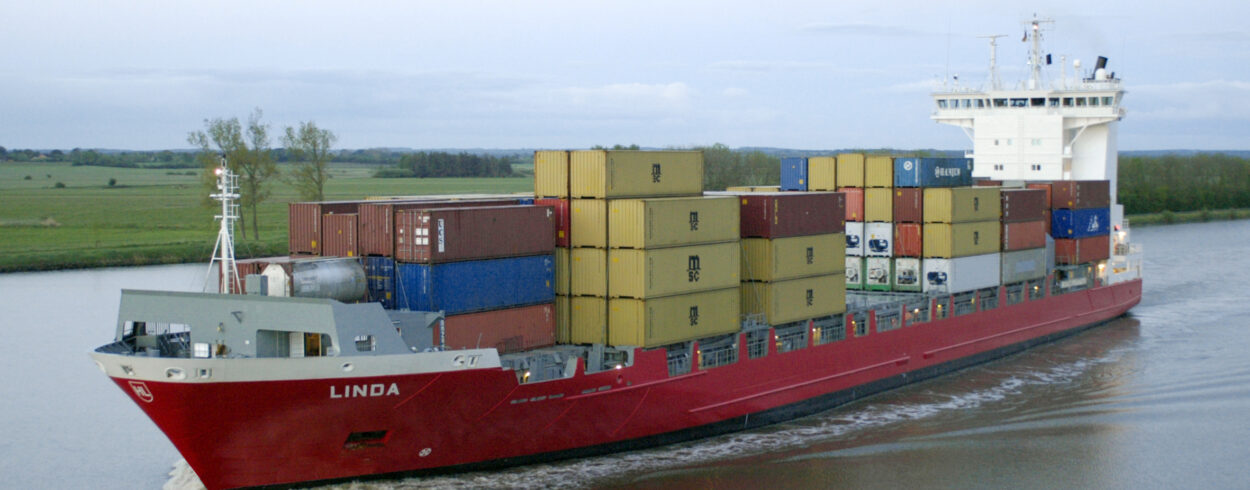European Shipowners’ priorities 2024-2029
13. maaliskuuta 2024

The European Community Shipowners’ Association (ECSA) is our international European umbrella organization for the shipping industry. ECSA promotes the interests of 21 member associations of the EU and Norway. ECSA strives for a regulatory environment that fosters the international competitiveness of European shipping. The Finnish Shipowners’ Association is a member in ECSA.
Ahead of the 2024 European elections, ECSA launches its policy priorities for the next five years. The four pillars are Climate and energy transition, People-centered green and digital transition, Ship Finance and Competitiveness and Trade.
Europe is facing an existential transformation as it strives to meet climate neutrality by 2050 while maintaining industrial leadership at global level.
European shipping has been a cornerstone of Europe’s energy, food, and supply chain security. European shipping, representing 39.5% of the world fleet, enables Europe to play a leading role in the international supply chains. Shipping delivers the goods and energy we need, supports EU exports and connects European citizens within Europe and with the rest of the world.
To ensure European shipping continues to play a strategic role for the security of Europe, the ECSA Priorities 2024-2029 put forward policy recommendations along four key pillars:
- Climate and energy transition
- People-centered green and digital transition
- Ship Finance and Competitiveness
- Trade
“Shipping has been a European success story amid growing geopolitical instability. It has been a cornerstone of the economic security of our continent, delivering the energy we need and supporting the exports of our goods. Shipping has enabled Europe to remain a leader in the international supply chains.
At the same time, the uptake of clean fuels and technologies has emerged as the new battlefield of international competition. The EU has set up the most ambitious climate targets internationally laying out a pathway to net zero by 2050. However, without proper access to finance and without immense public investments, the energy transition and the competitiveness of the industry are at stake.
To meet the challenge of the digital transition and to match the uptake of clean fuels, we need to address the skills gap. Up to 800,000 seafarers will have to be upskilled or reskilled internationally by the mid-2030s” said Sotiris Raptis, ECSA’s Secretary General.
Read the ECSA Priorities 2024-2029 here.
Download the ECSA Priorities 2024-2029 here.
The EU’s waterborne transport sector issues Joint Declaration, charting the course towards a resilient, competitive and sustainable future.
The Joint Declaration, signed by 13 European Associations, calls for a coordinated effort between public and private sector actors, with resilience, competitiveness and level playing field as cornerstones.
Read declaration here: https://www.ecsa.eu/sites/default/files/publications/240311_EU_Waterborne_Transport_Sector_Joint_Declaration_-_March_2024.pdf
Merenkulkijoiden päivä 25. kesäkuuta – Kohti häirinnästä vapaata merityöympäristöä
19. kesäkuuta 2025 - Suomen Varustamot Ry
Kansainvälisen merenkulkujärjestön meriturvallisuuskomitea kokoontuu käsittelemään vaihtoehtoisten polttoaineiden turvallisuussääntelykehystä
17. kesäkuuta 2025 - Finnish Government - Valtioneuvosto
Finnlines vahvistaa yhteyksiä Eurooppaan lisäämällä Gdynian Pohjanmeren liikenteeseen
9. kesäkuuta 2025 - Finnlines
Viking Line konseptoi maailman suurimman sähköisen matkustaja-autolautan
6. kesäkuuta 2025 - Viking Line Abp
Viking Line konseptoi maailman suurimman sähköisen matkustaja-autolautan
6. kesäkuuta 2025 - Cision - Finland